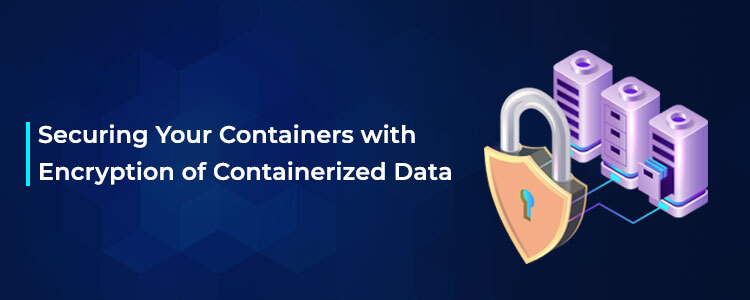Most of the business applications today are enabled by the cloud with a lot of them residing as containerized workloads. Digital transformation is being powered by concepts encompassing containers, Kubernetes, and microservices and has become indispensable parts of how applications are developed & deployed.
If we take containers particularly in consideration, they are modernizing applications like never before and helping in creating scalable & agile cloud-native applications. Even though companies are adopting containers at a fast pace, operating them in production will need a steep learning curve.
As per Gartner, by 2022 a whopping 75% of the organizations will be using containerized applications in production, up from 30% in 2019.
But this is not the entire story. Companies still need to mature in their adoption of container and one of the key areas of concern is security, especially that of the data and that will be the focal point of this blog.
What are Containers?
Container technologies like Docker and orchestration frameworks like Kubernetes administer a standardized way to package applications along with the code, runtime and libraries so that they can run consistently across the software development lifecycle.
The biggest advantage – You can run your application reliably when moved from one computing environment to another. The environment could be anything from a developer’s laptop, test environment or from staging to production. You can even move the application from a physical machine in a data center to a virtual machine in the cloud.
For instance, think about Google Maps! The moment you search for a fresh location on your mobile application, the cloud service constructs a new container to manage the workload. Now imagine the number of times people search for locations on Google Maps on a particular day – that’s a lot of containers!
**So why containers? **Traditionally workloads and applications had to be built from scratch if there was a need to migrate to another environment. Containers solved this problem with the concept of “isolation”. They are lightweight software components that package the application along with its dependencies & configurations in an isolated environment on a traditional OS, traditional server.
“Isolation” is important here. Isolation delivers-
- Speed – containers can be deployed much faster than virtual machines as they are smaller entities.
- Responsiveness – shorter start-up times
- Portability – They can be moved between different platforms & cloud vendors.
The reason why the industry has been so excited about containerization is the flexibility they offer and the faster pace of application development that comes with it. Containers and orchestration engines like Kubernetes are paving the way for a new era of application development where modern concepts like microservices and continuous development and delivery are the new normal.
What is Container Security and why is it being talked about?
The flexibility we just spoke about also leaves containers susceptible to security risks. On one hand, containers have transformed the way applications are built & scaled and on the other, this has given rise to challenges around security, storage, and networking.
You can’t possibly wait until you go into production to integrate a container security solution. It will nullify the advantages gained from DevOps processes when deployments are delayed because of security matters popping up at the end of the development cycle.
Let’s take a look at some of the findings in the State of Container and Kubernetes Security Report, 2020.
**About half of the respondents said that they had to delay an application rollout because of a security issue. **
Container technology is one of the major drivers of IT innovation & digital transformation. However, the fact that 44% of respondents agreed that they had to delay application deployments into production because of a container security issue indicates an aching fact – organizations are unable to tap into its biggest benefit i.e. faster app delivery.

#business insights #devops #container security #containerization #encryption #what are containers
